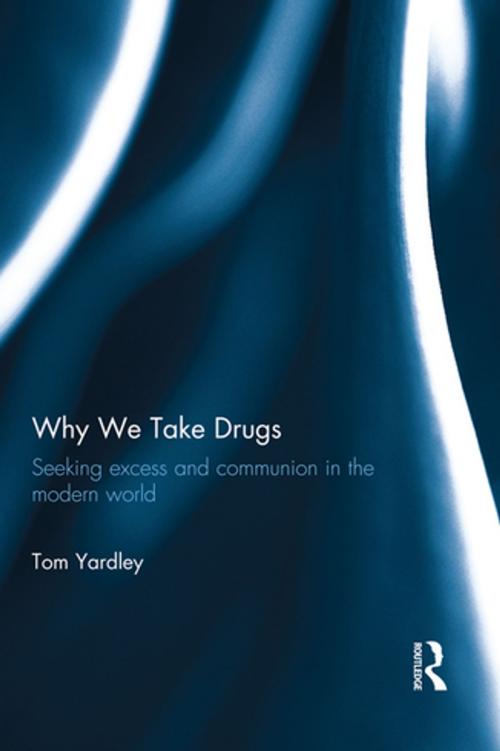Why We Take Drugs
Seeking Excess and Communion in the Modern World
Nonfiction, Reference & Language, Law, Criminal law, Social & Cultural Studies, Social Science, Cultural Studies, Popular Culture, Sociology| Author: | Tom Yardley | ISBN: | 9781136446863 |
| Publisher: | Taylor and Francis | Publication: | March 29, 2012 |
| Imprint: | Routledge | Language: | English |
| Author: | Tom Yardley |
| ISBN: | 9781136446863 |
| Publisher: | Taylor and Francis |
| Publication: | March 29, 2012 |
| Imprint: | Routledge |
| Language: | English |
In older cultures, the use of intoxicant drugs was integrated into the rhythms of social existence and bounded by rituals and taboos that ensured their dangerous forces were contained and channelled. In modern western societies, by contrast, the state and the institutions of society have washed their hands of any responsibility for assimilating the desire for intoxication into social existence, and by doing so have sponsored a free-for-all that has often had disastrous consequences for individuals and communities alike.
Why We Take Drugs provides a timely intervention in the growing debate about the wisdom of the ongoing ‘war on drugs’. Rather than adopting the assumption that drug and alcohol use is a problem that poses a threat to society, this book makes a case for the idea that society is a problem for intoxicant drug use and that it is society that poses a threat, by denying those who seek intoxication a legitimate and socially sanctioned space in which to experience these altered states. Scholarly yet approachable, it provides a new understanding of the meaning and role of intoxicant drug use in contemporary society, setting an in-depth phenomenological analysis of intoxication as an embodied experience within a wide sociological, anthropological and historical context. These ideas are brought to life by intimate and revealing accounts of ordinary drug users’ experiences with a wide range of substances.
This book will appeal to a wide range of students and scholars throughout the social sciences, particularly in the areas of drug and alcohol studies, body studies, cultural studies, anthropology and philosophy.
In older cultures, the use of intoxicant drugs was integrated into the rhythms of social existence and bounded by rituals and taboos that ensured their dangerous forces were contained and channelled. In modern western societies, by contrast, the state and the institutions of society have washed their hands of any responsibility for assimilating the desire for intoxication into social existence, and by doing so have sponsored a free-for-all that has often had disastrous consequences for individuals and communities alike.
Why We Take Drugs provides a timely intervention in the growing debate about the wisdom of the ongoing ‘war on drugs’. Rather than adopting the assumption that drug and alcohol use is a problem that poses a threat to society, this book makes a case for the idea that society is a problem for intoxicant drug use and that it is society that poses a threat, by denying those who seek intoxication a legitimate and socially sanctioned space in which to experience these altered states. Scholarly yet approachable, it provides a new understanding of the meaning and role of intoxicant drug use in contemporary society, setting an in-depth phenomenological analysis of intoxication as an embodied experience within a wide sociological, anthropological and historical context. These ideas are brought to life by intimate and revealing accounts of ordinary drug users’ experiences with a wide range of substances.
This book will appeal to a wide range of students and scholars throughout the social sciences, particularly in the areas of drug and alcohol studies, body studies, cultural studies, anthropology and philosophy.















